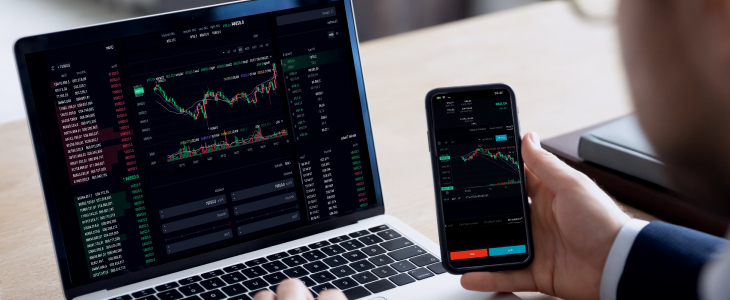
Effective Forex Trading Strategies for Beginners
Forex trading can seem overwhelming for beginners, but with the right strategies, you can enter the market with confidence. Understanding your approach is crucial in maximizing your potential profits while minimizing risks. Whether you are looking for ways to enhance your trading skills or seeking reliable forex trading strategies for beginners Forex Trading Platforms, this article will guide you through basic strategies that can help you succeed in the forex market.
Understanding the Forex Market
Before diving into trading strategies, it is essential to understand how the forex market operates. The forex market is the largest financial market in the world, where currencies are traded against one another. Currencies are quoted in pairs (e.g., EUR/USD), and their value fluctuates based on various factors, including economic indicators, market sentiment, and geopolitical events.
1. Start with a Trading Plan
Every successful trader starts with a thorough trading plan. A trading plan outlines your financial goals, risk tolerance, and specific strategies you will use. Include the following components in your plan:
- Goals: Define what you want to achieve, like a monthly profit target.
- Risk Management: Determine how much capital you are willing to risk on each trade.
- Trading Strategy: Choose a strategy that aligns with your goals and personality.
- Review Process: Regularly assess your trades to learn from successes and mistakes.
2. Learn and Utilize Technical Analysis
Technical analysis is a method used to evaluate currencies based on historical price movements and chart patterns. Here are a few essential elements of technical analysis:

- Charts: Use line, bar, or candlestick charts to visualize price movements.
- Indicators: Familiarize yourself with commonly used indicators like Moving Averages, RSI (Relative Strength Index), and MACD (Moving Average Convergence Divergence).
- Support and Resistance: Identify price levels where the currency pair tends to reverse direction. This helps you make informed entry and exit decisions.
3. Incorporate Fundamental Analysis
While technical analysis focuses on price movements, fundamental analysis looks at economic events and news that affect currency values. Key economic indicators include:
- Interest Rates: Higher interest rates typically strengthen a currency, while lower rates can weaken it.
- Economic Data Releases: Reports on employment, inflation, GDP, and trade balances can impact market sentiment.
- Central Bank Policies: Monitoring central bank announcements can provide insights into potential currency movements.
4. Practice with a Demo Account
Before risking real money, practicing your strategies on a demo account is a wise move. Most forex brokers offer demo accounts that mimic real market conditions without financial risk. Here’s why they are beneficial:
- Practice Execution: Get comfortable executing trades and managing your positions.
- Experiment with Strategies: Test different trading strategies to see which works best for you.
- Build Confidence: Gain experience without the fear of losing money.
5. Risk Management is Key
Effective risk management is essential for long-term success in forex trading. Here are a few risk management strategies to consider:

- Use Stop-Loss Orders: Set stop-loss orders to automatically close a trade when it reaches a certain loss level.
- Limit Your Leverage: While leverage can amplify profits, it can also increase losses. Use leverage cautiously.
- Diversify Your Trades: Avoid putting all your capital into one trade or currency pair. Diversification can reduce risk.
6. Keep Emotions in Check
Trading can evoke strong emotions such as greed and fear, which can impact decision-making. Here are some tips to maintain emotional discipline:
- Stick to Your Plan: Follow your trading plan, even when market sentiments sway. Do not deviate due to impulse decisions.
- Accept Losses: Understand that losses are part of trading. Use them as learning opportunities rather than reasons to lose control.
- Take Breaks: If you feel overwhelmed or emotional, take a break from trading to regain perspective.
7. Continuous Learning
The forex market is dynamic; therefore, continuous learning is crucial for your success. Educate yourself by:
- Reading Books: Many trading books provide valuable insights into strategies and market psychology.
- Following Market News: Stay updated with the latest market news and trends through financial news websites and blogs.
- Join Trading Communities: Engage with other traders in forums or social media platforms to share experiences and tips.
Conclusion
As a beginner in forex trading, it is vital to have a structured approach to maximize your chances of success. Implementing the strategies outlined in this article will help you develop your skills and navigate the complexities of the forex market. Always be patient, stay disciplined, and continuously improve your understanding of market dynamics. With time and practice, you can become a proficient forex trader.


